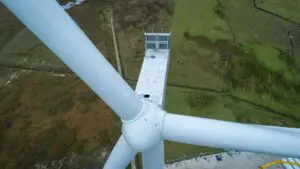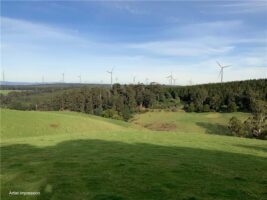Clean energy and low-carbon investors are abandoning Australia as the new Federal government, and its conservative colleagues at state level, turn their interests and policies away from renewables and long-term carbon abatement incentives.
Several key players in the clean energy finance industry have told the Senate hearings into the proposed Direct Action policy that investors are looking to Europe, the US and some South American countries to find low-carbon opportunities.
“My members are looking at the United Kingdom, Ireland, the United States, France and some South American countries as having more stable investment environments for low-carbon opportunities,” said Nathan Fabian, the head of the Investor Group on Climate Change.
“Direct action is not an investment grade policy,” he said, noting that investors viewed it more like a short-term grants scheme. Banks, he said, were likely to take a similar view, echoing the frustrations of many players in the clean energy industry who have been unable to obtain finance because of policy uncertainty.
Fabian also said the proposed review of the RET “appears to be another very clear signal that Australia will not be a market for low-carbon investing for the next few years.”
Tim Buckley, a former Citigroup chief analyst in Australia, clean energy funds manager, and now with the US-based Institute for Energy Economics and Financial Analysis, told the same hearing that the Australian clean energy industry is regressing because of the lack of clarity on policy.
“We are worse than stalling; we are actually investing in assets that I think will become stranded as a result,” Buckley said. “Internationally, companies and economies are building industry capacity to transition for the long term. We should be building capacity as well and we are not doing so.”
He said Australia was currently missing out on hundreds of billions of dollars that being invested every year in renewables, in energy efficiency and in development of these new technologies, and the hundreds of thousands of jobs being created in China, in Germany and in America.
Numerous other parties have dismissed the proposed emissions reduction fund as “unfinancable” – mostly because it offers a maximum 5-year investment horizon. That reflects the view of most people – and possibly even the government – that Direct Action is not a long-term policy position, just part of a short-term political manoeuvre that has helped deliver power to the conservative parties.
Still, it is the situation that is facing investors – be they developers, financiers, bankers or infrastructure investors – in Australia in the coming year.
Players in the renewables industry say the sector is facing its biggest crisis in a decade, when the last Coalition government brought a close to the then mandatory renewable energy target , causing new manufacturing facilities to close, international groups to withdraw, and local developers such as Pacific Hydro and Roaring Forties to move the bulk of the operations overseas.
The assessment by Fabian and Buckley is consistent with frustrations expressed privately by international investors, who have seen policies on hold, the price of renewable energy certificates fall by nearly half, the carbon price subject to repeal, and a proposed replacement that holds no interest for financiers.
One investor said recently there is a complete lack of liquidity in the market, because everyone is in “wait and watch” mode. Banks are not able to price the forward market, and the outlook looks poor.
Its ironic, one noted, because the market for conventional generation is effectively dead – because of falling demand and concern about longer term carbon implications – but there is currently little to interest investors in clean technology, particularly new emerging technologies.
The ACT renewable energy auction program, part of its plan to seek 90 per cent renewables by 2020, is the one exception. It has already unlocked 40MW of utility scale solar PV projects, and will seek 550MW of other capacity, including wind and a 50MW solar park. But while welcome and of interest, it is relatively small-scale in a global or even a national context.
Buckley said Australia appears to be working on the premise that the world is going to do nothing on climate change.
“That is a flawed premise, he said. “We are investing tens of billions of dollars building new assets to promote fossil fuels, be it in LNG, coal, the Galilee in particular, Abbot Point port infrastructure. The investment is huge and I think it is going to end up leaving us with stranded assets because we are missing the point that China, India, America and Germany are moving full steam towards a low-carbon economy.
“They are not going to need our fossil fuels in 20 or 30 years time, and we are building assets with 50-year lives. To build a coal port in the middle of the Great Barrier Reef with a 50-year life means we are effectively becoming a price taker for fossil fuels. Those assets will be stranded and we will see very, very significant write-downs on the back of them. “
Fabian said the scenario that Buckley cited could begin to “bite quite hard” within the next decade. “That compromises our investors, compromises the beneficiaries and workers and compromises the pensions that we guard. That is the essential policy risk that we are trying to address with a long-term framework.
Fabian said that the carbon price, the renewable energy target, and institutions such as ARENA and the CEFC play critical roles in assisting and building the capacity of the Australian financial community in low-carbon investing.
“This is a strategic question for Australia in terms of what competency we are going to have in our financial markets,” he said. “We need to move markets to places where they are not quite sure they should be yet because the policy signals are not clear enough. We know that cannot last.
“Without a central, long-term policy framework, there is significant uncertainty for investors in all assets – emissions-intensive, emissions- reducing technologies and low-carbon activities alike. The consequence of this is that the cost of private capital for achieving emissions reductions would increase and the cost of achieving those reductions would also increase.”
Oliver Yates, the head of the CEFC, also appeared at the same hearing. Later, he told RenewEconomy in an emailed statement that financiers aren’t committing time and effort to finance large scale renewal energy projects on fixed terms.
“Work that is being undertaken is premised on a reasonable outcome of the RET. Beyond this, the market is effectively on hold, with most parties not prepared to enter into a firm contract and start construction pending the outcome of the RET review,” Yates said.
“Many projects are seeking CEFC involvement to help secure other finance. Unless projects continue to be developed on the assumption that the RET review will not destroy the value of RECS, even if they can’t be finally funded till after the Review, there will be market disruption.”
There is significant uncertainty impacting the market. The legislated RET program created an environment of certainty on which developers, financiers and the market generally, could base their expectations, investing significant resources to develop and secure permits for projects. That value is now being stripped away.








